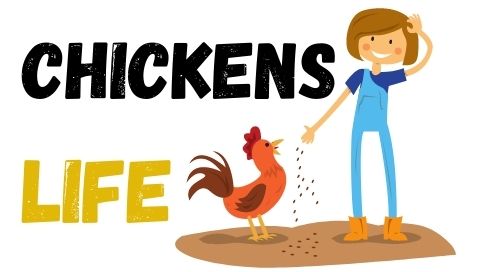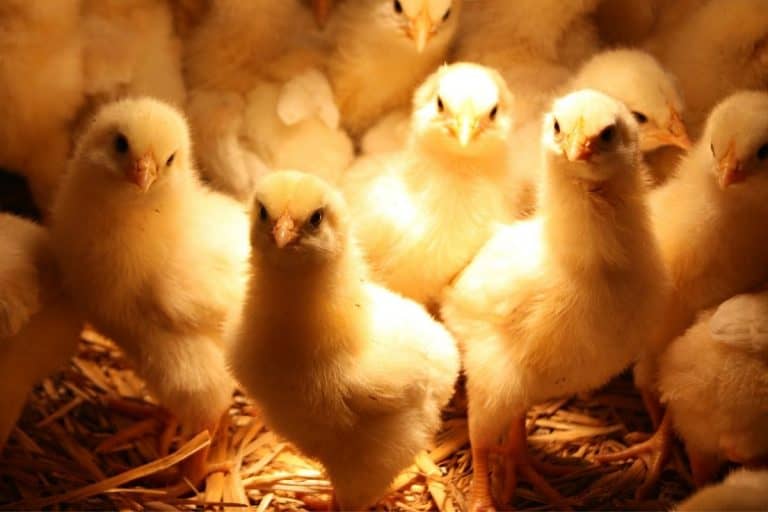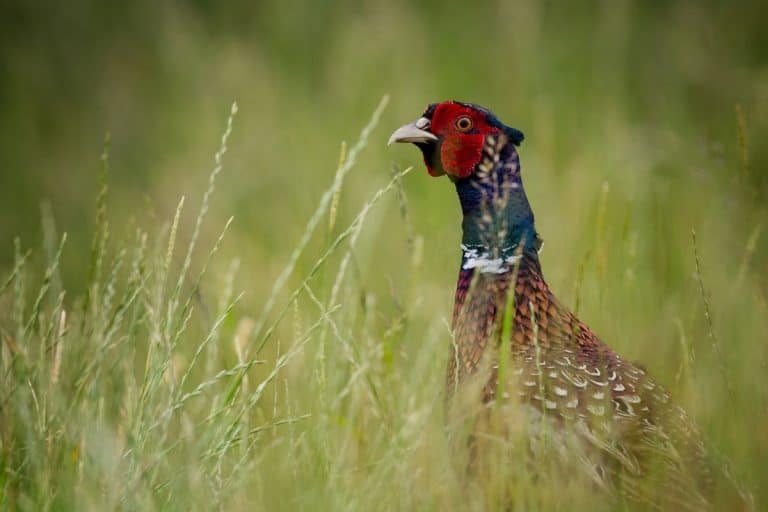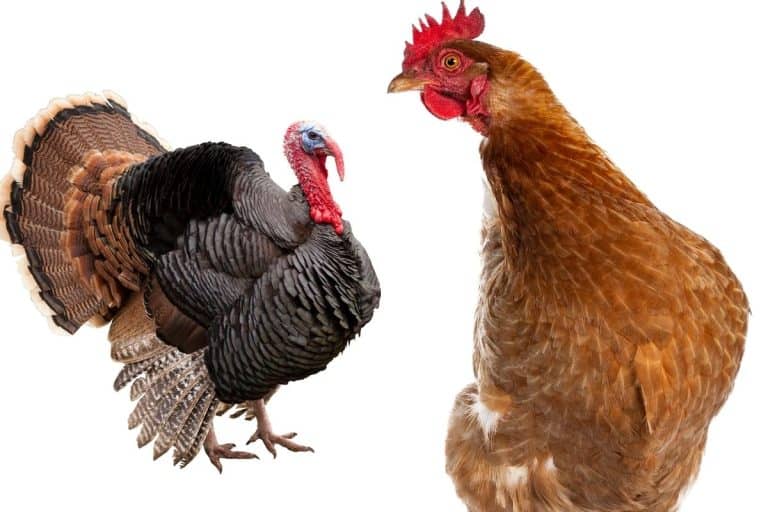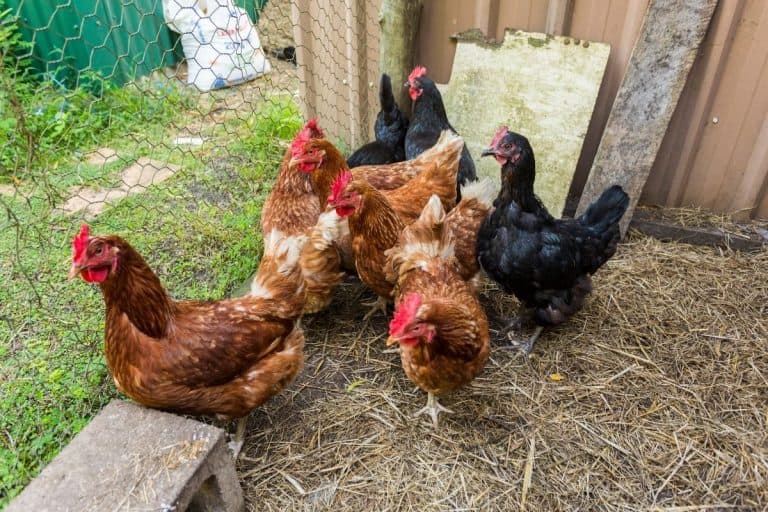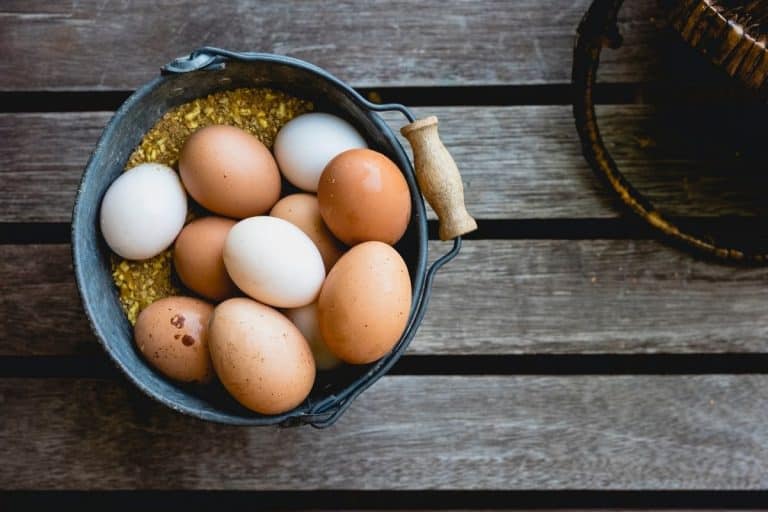How Many Times A Day Should I Feed My Chickens?
Feeding chickens doesn’t need to be complicated. However, it is very important for your egg quality and quantity. One adult hen can eat around a ¼ lb of nutrient-rich poultry feed every day, and surely they could eat more if you provided it! When you feed your chickens well, you will be rewarded handsomely with an abundance of beautiful, nutritious eggs to go around.
Chickens should be fed at least once daily, but it is best to provide a continuous amount of complete and balanced chicken feed throughout the entire day.
A laying hen will need a lot of nutrients and energy to produce healthy eggs, so in order to do that, a chicken needs to have access to a constant supply of feed. These guidelines will help you better understand your chicken and their dietary schedule and needs so you can have high quality and quantity of eggs right from the start!
Hey chicken buddies: Quick heads-up before going further! I've put together a list of stuff I use and love for my flock. If you're curious about what keeps my hens happy, click here to find out.
How Many Times A Day Should A Chicken Be Fed?
Once-daily is technically all that is necessary for feeding chickens, assuming that you provide an appropriate amount of food that will last the entire day. Ultimately, the answer to this question truly lies with your personal life and circumstances.
Twice daily would be great! If you work a 9 to 5 job, then maybe feeding in the morning before work and that evening after you get home would be suitable for your life. If you are lucky enough to stay home all day then checking on them regularly and throwing down feed several times daily would be nice for the chickens.

Time of Day
I suppose there isn’t a rule for the time of day that you should feed your chickens. But I personally think that since chickens rise in the morning and get their day started pretty early, feeding them then is more ideal for their routine.
With that being said, they also need to go to bed, with a full crop for better digestion and egg production, which is usually once it gets dark. This is why feeding them again in the evening is important.
Hopper Feeder
If you are ever worried that your chickens are not getting enough food because of your schedule or because the dominant hen is eating most of it, then purchasing a hopper feeder could be just what you need.
The hopper feeder is very much like an automatic dog feeder. It works with gravity to keep a constant amount of food available. Well, until it runs out, that is.
Wait, I have some recommendations for you!
Before you go any further, I want you to take a look at some of the recommendations I've handpicked for you. I think these are essential items you should have for your chickens flock. You can check them out and buy them directly from Amazon.
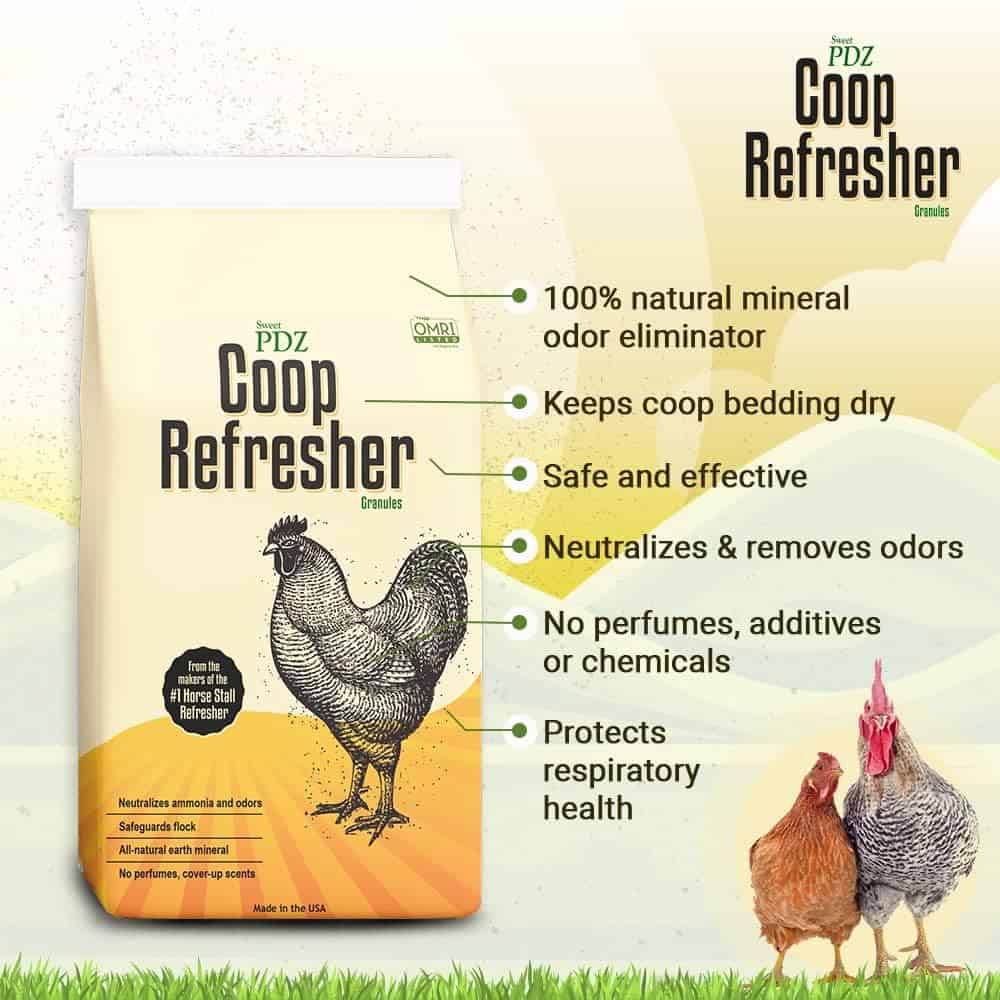 | 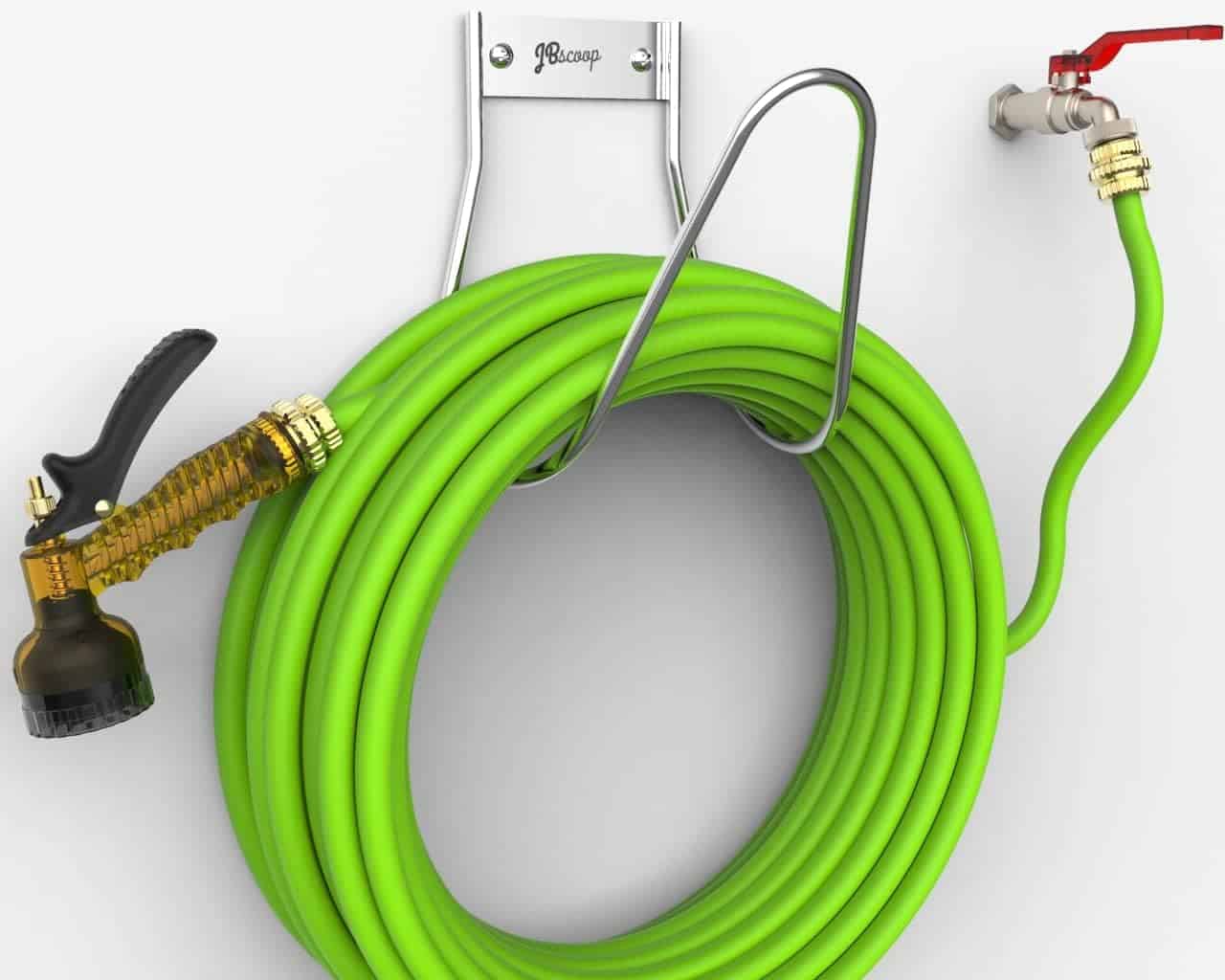 | 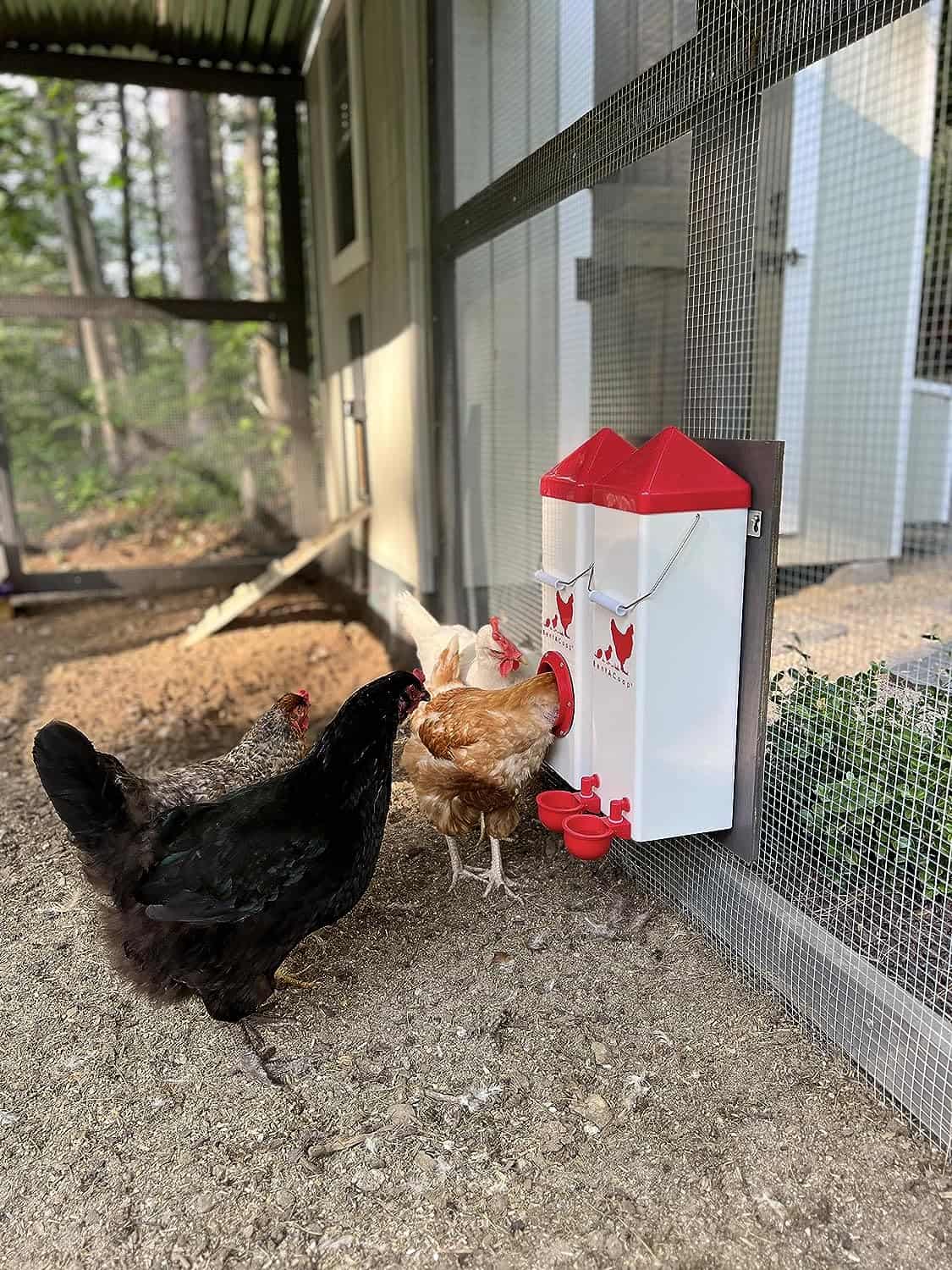 | 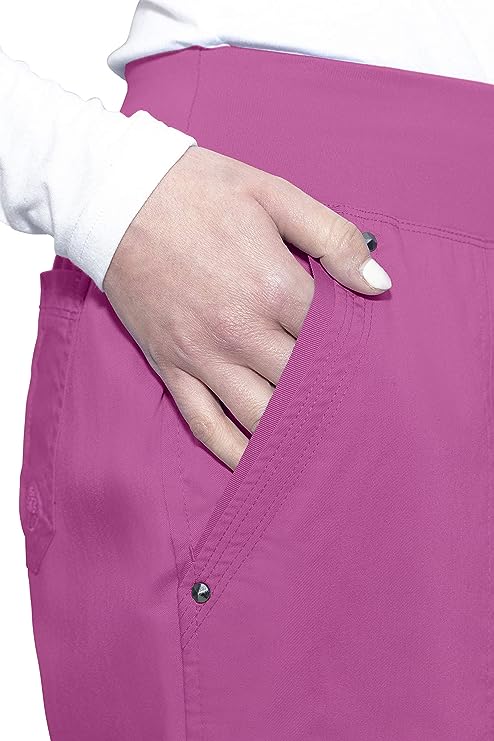 |
| Essential accessory for your coop | No more tripping over hoses! | Predator protection made easy | Comfort + style is possible |
How Much Should I Feed My Chickens?
Each chicken should eat around ½ cup a day of chicken feed. If you notice in the evening when picking up the food before bed that there is plenty of leftover feed in the trough (or feeder) then you should probably give them less.
You will quickly become familiar with how much your hens specifically eat each day.
How To Feed Chickens
Some people like to dump all their chicken’s days worth of food inside a trough, feeder or bowl. This is totally fine. Some people, including myself, also like to throw the food on the ground so that the chickens have to scratch and find their meal, which encourages activity and enrichment.
Trust me! You’re not wasting the food, they love the activity of scratching for their meals!
Maybe throw half the food down and the other half in their feeder. Whatever you feel like should work just fine, as long as it’s enough food!
Can You Overfeed Chickens?
Most chickens who are kept free-range are unlikely to become obese, and so you can’t really overfeed them.
Usually, if you put too much pellet or feed down, they will just not eat the extra. While the average chicken eats close to a ½ cup of their pellets a day, they should not exceed more than 10% of their daily food intake in treats.
Giving your chickens too much additional food and snacks like kitchen scraps and suet blocks will certainly cause your hens to become extra fluffy. Also, if your chickens do not have very much room in their run for exercise and exploration then they will tend to gain more weight than those with more space for roaming.
Feeding your chickens an excess of carbohydrates, fat or protein can be harmful to your hens. In the winter, it may be necessary to feed additional carbs, but it would be pertinent to keep an eye on their weight still.
Related: Pellets vs crumbles – Which one is better?
What Can Happen If My Chicken Is Overweight?

While a fat hen can be kind of cute and funny to watch, being overweight obviously comes with its health risks. Many hens will start to produce oversized eggs, which seems nice until your hen becomes egg-bound. Becoming egg bound can be life-threatening.
Egg binding occurs when the female bird is unable to expel an egg from her body. Birds with egg binding may or may not have passed an egg more than 2 days ago, are usually weak, not perching, often sitting low on the perch or on the bottom of the cage, and are straining as if trying to defecate or lay an egg. (source).
Feeding too many good things like sunflower seeds or suet blocks can also cause conditions such as fatty liver syndrome, which causes the liver to become soft and prone to bleeding.
Too many mealworms can lead to kidney issues due to their high amounts of protein. Chickens only need about 20 grams of protein a day, so keep that in mind when feeding your flock their yummy mealworms.
Frequently Asked Questions About Chicken Diets
If you are new to chickens, surely there are a few more questions regarding their food and diet that plenty of others are also wondering about. No worries, the below information should help clear any doubts you may have about your flock’s dietary needs.
Do Chickens Need Food And Water At Night?
Chickens do not need to eat or drink at night, once it becomes dark they usually will head to the coop and go to sleep. You should leave water out for them at all times though.
Leaving chicken feed out overnight will attract pests and other animals to their coop, which you would certainly want to avoid for many reasons. Keep your chicken’s food container and the water far apart from each other, as they are known for being messy. You wouldn’t want a whole bowl of chicken food to get soggy and go to waste!
What Is The Best Food For Chickens?
Chickens do best with a diet that consists of whole grains and low salt and sugar foods. A good diet that is high in quality and protein will render healthy and happy hens that lay nutritious eggs.
The Purina Layena chicken feed crumbles is a well-established and nutritionally complete diet backed by a reputable and reliable company. You certainly wouldn’t go wrong if you chose to feed this diet to your flock.
The chicken diet from Scratch and Peck Feed is another well-rated and highly praised food. Being organic and Non-GMO is a large reason why many farmers and backyard flock raisers choose this brand.
What Treats Are Healthy and Safe For My Chickens?
There are several treats and healthy snacks for chickens, as long as they are given in moderation. The list of options available for treat enrichment is much longer than the list of foods they can’t have.
- Broccoli – Strawberries! – Potatoes – Cheese
- Bananas – Rice (white/brown) – Bread – Pumpkin
- Grapes – Grass – Blueberries – Carrots
- Celery – Asparagus – Cucumbers – Mealworms
- Tomatoes – Oranges – Watermelon – Crickets
This is just the beginning of what you can give your chickens for fun! Feeding your chickens the peels and scraps of the fruits and vegetables from your kitchen and garden can be a truly beneficial and delicious snack as long as we keep it to a minimum. No matter how much they cluck and beg for unnecessary extra snacks, it is best to make sure that we don’t overfeed them.
What Foods Are Dangerous For My Chickens?
Obviously, some foods like chocolate and onions are bad for chickens to eat. However, the list of unsafe snacks is considerably shorter than the list of foods they can have. There are only a few things that can be considered dangerous to our feathered friends.
- Onions – Avocado – Pickles
- Chocolate – Eggplant – Processed junk foods
- Rhubarb – Peanuts
- Tomato Plants (leaves are toxic)
The Takeaway On Chicken Feeding
An important rule of thumb is just “when in doubt, don’t feed it!” Most fruits and vegetables that we can eat are safe to our feathered friends but it would be best to consult with some good resources or your poultry veterinarian if you aren’t sure.
Overall, chicken feeding is simple. Once a day is all that is necessary for your hens, but more than that is encouraged. Filling their bellies with a complete and balanced nutritious diet is all you need in order to have a healthy and happy flock.

